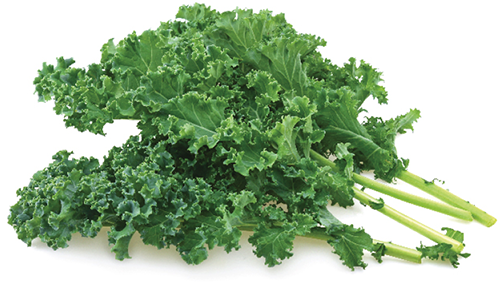
Dwarf Blue Curled Scotch is a variety of kale with dense, frilly blue-green leaves that sweeten with frost. This nutrient-dense variety is compact and upright.
Greeks were the first to cultivate this vegetable on the lime cliffs of coastal Europe. Kale was enjoyed for thousands of years in Europe where it was the most popular green before being replaced by cabbage in the Middle Ages.
Sow seeds indoors in flats four to six weeks before the last frost or sow directly outdoors in late spring. Plant in a sunny spot with rich, well-drained soil. Allowing the plants to weather a frost will sweeten the leaves. In Illinois, sowing seeds in August results in a tasty fall crop.
Harvest baby leaves as soon as they are big enough for salad, and harvest bigger leaves as needed throughout the season. Use scissors or a knife to cut the leaves about 1 inch from the central stem. Kale freezes well and can stay fresh for up to one month in the fridge.
Kale cross-pollinates with broccoli, cauliflower, and collards and should be isolated to preserve genetic purity.
Kale must overwinter before producing seed; because it survives cold, a thick layer of mulch should protect it sufficiently even in colder climates. In the spring, allow the plant to flower and go to seed. The stalk will develop pods that ripen from the bottom up. Pick them when they turn light brown and release seeds by crushing pods with your hands. Store seeds in a cool, dry place for up to four years.